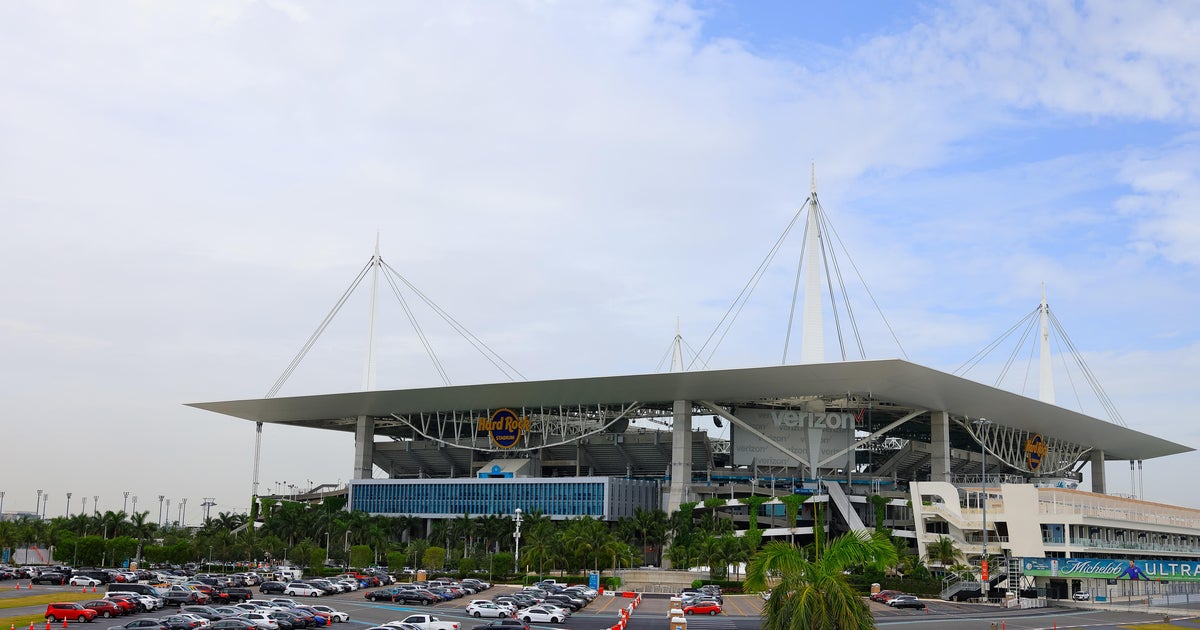South Florida buildings undergoing renovations in the name of safety
MIAMI - Three years after Champlain Towers South in Surfside collapsed, buildings across South Florida are undergoing hefty renovations in the name of safety.
The Florida Legislature passed new safety requirements in the wake of the collapse. Part of that effort is to ensure proper maintenance, as CBS News Miami explored some of the work now being done at some buildings in South Florida.
Our first stop took us to the Sea Ranch Club A in Lauderdale By the Sea.
"My balcony up there is the one completely off," shared Linda Thompson Gonzalez, a resident, pointing to the concrete restoration project just a few feet from her condo's backyard, which offers a breathtaking view of the beach and ocean.
"This is the view that makes it all worthwhile," smiled Gonzalez.
A view she considers worth the substantial special assessment price tag. She told us she paid $44,000.
"Like everybody, we have to invest in our homes; it's just hard for a lot of people with fixed incomes," added Gonzalez.
The 16-story high-rise was built in the early 1980s, around the same time as Champlain Towers South in Surfside.
In June 2021, Champlain Towers South collapsed, killing 98 people.
Gonzalez believes it inspired her condo community to be more proactive with building maintenance.
"We would be kidding ourselves to say that it didn't," said Gonzalez. "It certainly did. Fortunately, our building was always pretty well maintained. I think it was a real wake-up call for everybody."
Matthew Fadden works for the engineering firm hired by the court-appointed receiver for the Champlain Towers South condo association. His job is to investigate the collapse.
Fadden released evidence pointing to potential primary causes.
"It really is an A-typical type of thing," said Matthew Fadden, Associate Principal Wiss, Janney, Elstner Associates, Inc.
Fadden's findings start with the original design.
"Especially in the pool deck area, that was a massive problem trumping any other issue," mentioned Fadden.
He highlights work done in 1996 on the pool deck as another tipping point.
"Structure already underdesigned, then we're overloading it, and near its collapse load for many years," emphasized Fadden. "Chicken or an egg really. But it's the column and the slab were both undersized. Specifically, the slab was extremely undersized."
His team focused on the pool deck as a potential first failure. Fadden's findings align with preliminary reports from federal investigators with the National Institute of Standards and Technology. NIST has yet to determine the precise spot of the initial failure.
"One thing that stood out to us as structural engineers was the punching shear failures you can see all around," added Fadden.
Fadden demonstrated how punching shear works using a pen and paper. The paper acts like the concrete slab exerting force downward, while the pen acts like the column punching through.
Fadden tells us what happened at Surfside that is extremely rare.
CBS News Miami reporter Joe Gorchow asked Fadden, "How does one know if they're in a building that has a fatal flaw?"
Fadden responded, stressing that "most buildings are perfectly safe. We do not hear about this happening often. Do most buildings have this issue? No."
NIST is expected to take another year or more to issue a final report on the Surfside collapse.
Years before the collapse, in 2017, Greg Batista's engineering and construction was hired by Champlain Towers South to do a waterproofing planter detail on the pool deck.
"I saw, indeed, there were cracks that were somewhat suspect," said Greg Batista, owner and founder of G. Batista Engineering & Construction. "There was a sprawling, things of that sort. Something you typically see on condos that are a little bit older. I told them they needed to repair this, and they never called back."
Surviving families and those injured in the collapse received a one-billion-dollar settlement in 2022. Batista's firm, insurance companies, other engineering firms, and a neighboring high-rise paid. None admitted to any wrongdoing.
Batista wanted to speak with us to illustrate the importance of maintenance. He showed us issues at a condo building in Hollywood and inside its parking garage. The condominium board told me they hired Batista's company to make repairs, but they declined to speak on camera about the extensive work or how much it cost.
Like Champlain Towers, this building is also on the beach.
"The steel is corroding; the more it expands and corrodes, the more it chips out," said Batista while pointing at work underway in the parking garage.
Gorchow asked Batista, just feet from the shoreline, "What are the dangers for buildings at the shoreline with ocean water right nearby, potentially flowing in?"
Batista answered, "Everybody knows that if you have a car next to the beach, over the years, it's going to get corroded, same with the concrete. The concrete has the steel, and as it expands, it breaks up the concrete."
He adds the biggest challenge is making sure condo boards spend money on priority needs, not facelifts.
"They would rather change the carpets in the lobby and make the lobby really nice, as opposed to doing the non-sexy stuff, fixing up your waterproofing, painting, fixing the concrete," said Batista.
Gorchow: "Does the right coat of paint maintain the structural integrity of the concrete?"
"Absolutely. 100%. Those kinds of things are their first line of defense."
Batista says ignoring more minor repairs early could cost condo owners millions in future fixes.
We did contact the law firm that represented the Champlain Towers South residents about this story, but they have yet to respond.




